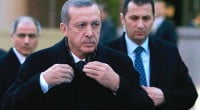What is lacking in democratization package is democracy itself

Date posted: February 1, 2014
SERKAN DEMİRTAŞ
The government is actively mobilizing all state means and its parliamentary majority in its efforts to cover up the massive corruption and graft operation. It is pushing back against allegedly pro-Fethullah Gülen community prosecutors and senior police officers, while at the same time trying to give a new order to the judiciary through a number of legal amendments, in what ruling party officials call a “democratization package.”
In this column on Oct. 2, 2013, I wrote the following sentences: “To sum up, we will hear more about packages and processes in the course of the elections. It’s always good for the government to buy time with these delaying tactics, given the fact that we like talking about packages more than democracy and talking about enduring processes more than reforms.”
This time’s so-called democratization package to soon be submitted to Parliament is an overt effort to make judicial proceedings nearly impossible if the consent of a governor or one of their deputies has not been granted. A prosecutor who wants to start an operation will first go to the governor (read: the government) in order to get a license to use law enforcement bodies in any sort of operation. This move is not only against democratic norms and the principles of transparency and the rule of law, but is also a clear reflection of a defensive mechanism in light of mounting corruption and graft claims surrounding senior government officials.
What helps us to see the intention behind such a step are the minutes of a conversation between the recently appointed Justice Ministry undersecretary and a chief prosecutor who launched a probe into fraud claims at İzmir Harbor. In a direct intervention into a judicial decision, the undersecretary – obviously instructed by the minister – wants the prosecutor to stop the investigation. Furthermore, the recently appointed Istanbul chief prosecutor removed two key prosecutors who launched the Dec. 17 operation at its very key phase, leaving nobody in office who can write the indictment.
While on the one hand these moves are aimed at stopping the already launched investigation, they are also likely to let the government escape other potential corruption and graft probes. One of the most important claims has been voiced by Republican People’s Party (CHP) leader Kemal Kılıçdaroğlu, who asked Erdoğan about the source of $99,999,990 transferred to the bank account of the Service for Youth and Education Foundation of Turkey (TÜRGEV), an NGO which counts the prime minister’s son, Bilal Erdoğan, as one of its board members.
It’s been four days since Kılıçdaroğlu made this claim, arguing that the foundation had turned into the “center of corruption of the prime minister,” but neither Erdoğan nor TÜRGEV has made a statement responding to the CHP’s allegations.
Another governmental move proving that what is currently being done by the ruling party has nothing to do with democratization is a draft law increasing government control over the use of the Internet. This would allow Turkey’s telecommunications authority to block websites or remove content accused of privacy violations without a court decision, and it would also force service providers to keep Internet users’ data for two years.
The list can be expanded with a number of other undemocratic initiatives of the government. Despite great efforts from the pro-government media and the government itself to black out such undemocratic moves, they are surely being closely followed by the EU and other countries concerned about the state of affairs in Turkey. Erdoğan is trying hard to increase his visibility abroad and to convince his European partners, but his efforts are deemed futile as he has already lost his credibility in the international arena. EU observers who are familiar with Erdoğan’s recent encounters with European leaders describe the Turkish prime minister as “extremely and unprecedentedly calm.” Pundits in Ankara are now wondering whether he will be able to preserve his calmness during his next week’s visit to Berlin, where he will meet Chancellor Angela Merkel.
On the U.S. front, there is not much change except for a last minute cancellation of Secretary of Defense Chuck Hagel’s visit to Ankara. Except for Ahmet Davutoğlu-John Kerry meetings, it’s been months since high-level Turkish and American officials have come together. In addition, Erdoğan has lost his connection to U.S. President Barack Obama.
It seems that it’s time for Erdoğan and his aides to realize that meaningless conspiracy theories accusing international powers of plotting against the government have started to cause irreparable damage to Turkey and its interests.
Source: Hurriyet Daily , February 1, 2014
Tags: Fethullah Gulen | Hizmet (Gulen) movement | Turkey |
























